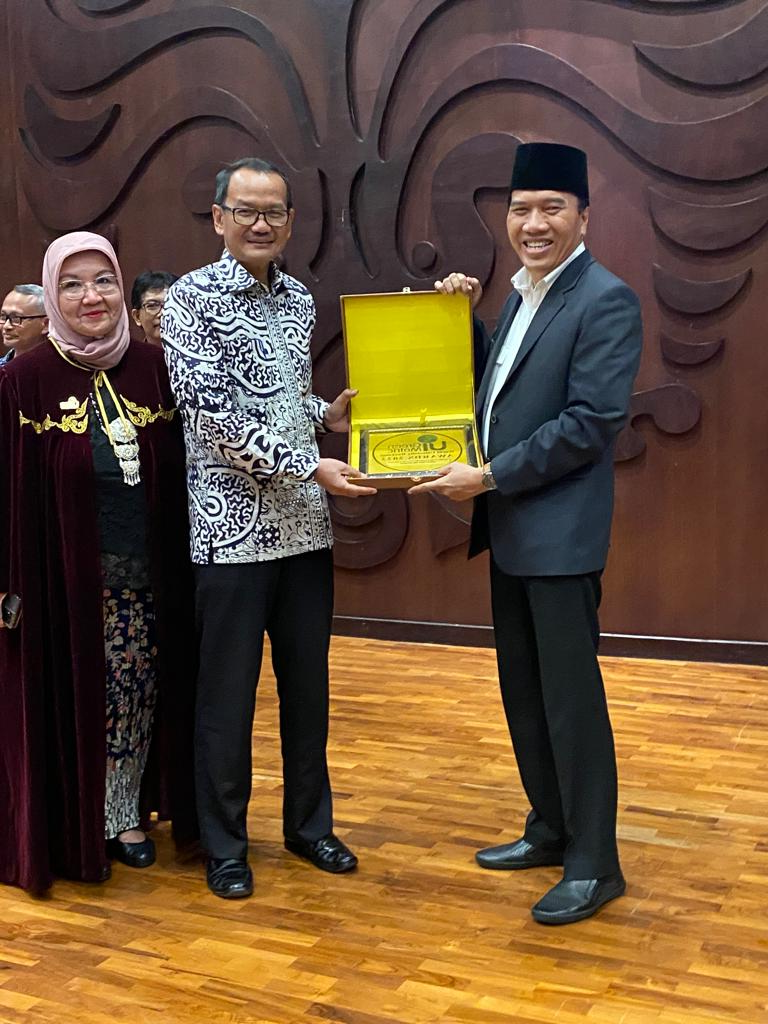RAINWATER: Blessing or Calamity? Rain is part of a hydrological cycle that lasts sustainable . The use of rainwater is important in order to have added value in environmental management. Un-used rainwater can cause flooding or waterlogging and become a breeding site for mosquito development. To increase these benefits, the Faculty of Public Health built a Rain Harvesting Unit by collecting rainwater caught by the roof of the building and channeling it to the Ground Container. in order to be a more useful water resource.
The construction of this unit is also to support the achievements of the UI Green Metric World University Rankings. The results of rainwater harvesting can be used for personal hygiene needs and flushing the garden within the Faculty. The manufacture of Rain Harvesting units will be carried out on an ongoing basis so that every Building in the Faculty has a Rain unit available


